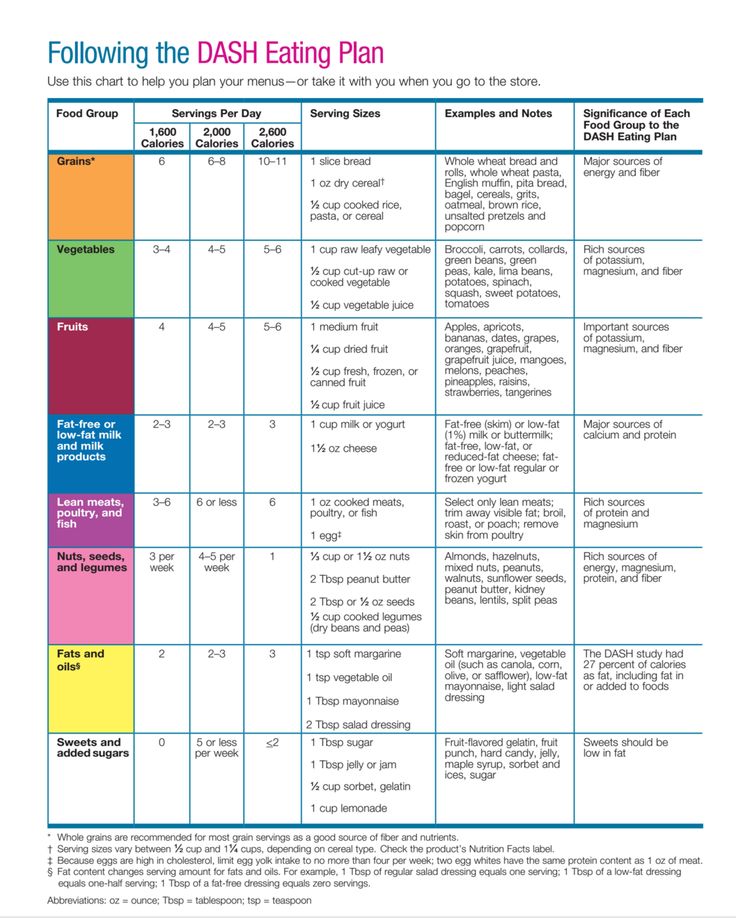Sleep patterns infant
Baby sleep: what to expect at 2-12 months
Baby sleep needs
Babies need sleep to grow and develop well. But babies’ sleep needs vary, just as the sleep needs of older children and adults do. Your baby might be doing well with more or less sleep than other babies the same age.
Your baby’s mood and wellbeing is often a good guide to whether your baby is getting enough sleep. If your baby is:
- wakeful and grizzly, they might need more sleep
- wakeful and contented, they’re probably getting enough sleep.
How baby sleep changes from 2 to 12 months
As they get older, babies:
- sleep less in the daytime
- are awake for longer between naps
- have longer night-time sleeps and wake less at night
- need less sleep overall.
2-3 months: what to expect from baby sleep
At this age, babies sleep on and off during the day and night. Most babies sleep for 14-17 hours in every 24 hours.
Young babies sleep in cycles that last 50-60 minutes. In young babies, each cycle is made up of active sleep and quiet sleep. Babies move around and grunt during active sleep, and sleep deeply during quiet sleep.
At the end of each cycle, babies wake up for a little while. They might grizzle or cry. They might need help to settle for the next sleep cycle.
At 2-3 months, babies start developing night and day sleep patterns. This means they tend to start sleeping more during the night.
Around 3 months: what to expect from baby sleep
Babies keep developing night and day sleep patterns.
Their sleep cycles consist of:
- light sleep, when baby wakes easily
- deep sleep, when baby is sound asleep and very still
- dream sleep, when baby is dreaming.
Sleep cycles also get longer, which might mean less waking and resettling during sleep. At this age, some babies might regularly be having longer sleeps at night – for example, 4-5 hours.
Most babies still sleep for 14-17 hours in every 24 hours.
3-6 months: what to expect from baby sleep
At this age, most babies sleep for 12-15 hours every 24 hours.
Babies might start moving towards a pattern of 2-3 daytime sleeps of up to two hours each.
And night-time sleeps get longer at this age. For example, some babies might be having long sleeps of six hours at night by the time they’re six months old.
But you can expect that your baby will still wake at least once each night.
6-12 months: what to expect from baby sleep
Babies sleep less as they get older. By the time your baby is one year old, baby will probably sleep for 11-14 hours every 24 hours.
Sleep during the night
From about six months, most babies have their longest sleeps at night.
Most babies are ready for bed between 6 pm and 10 pm. They usually take less than 40 minutes to get to sleep, but some babies take longer.
At this age, baby sleep cycles are closer to those of grown-up sleep – which means less waking at night. So your baby might not wake you during the night, or waking might happen less often.
But many babies do wake during the night and need an adult to settle them back to sleep. Some babies do this 3-4 times a night.
Sleep during the day
At this age, most babies are still having 2-3 daytime naps that last for between 30 minutes and 2 hours.
6-12 months: other developments that affect sleep
From around six months, babies develop many new abilities that can affect their sleep or make them more difficult to settle:
- Babies learn to keep themselves awake, especially if something interesting is happening, or they’re in a place with a lot of light and noise.
- Settling difficulties can happen at the same time as crawling. You might notice your baby’s sleep habits changing when baby starts moving around more.

- Babies learn that things exist, even when they’re out of sight. Now that your baby knows you exist when you leave the bedroom, baby might call or cry out for you.
- Separation anxiety is when babies get upset because you’re not around. It might mean your baby doesn’t want to go to sleep and wakes up more often in the night. As babies mature they gradually overcome this worry.
6-12 months: night-time feeding
From around six months of age, if your baby is developing well, it’s OK to think about night weaning and phasing out night feeds. But if you’re comfortable with feeding your baby during the night, there’s no hurry to phase out night feeds.
You can choose what works best for you and your baby.
A rollover feed is a late feed somewhere between 10 pm and midnight. Some parents find that rollover feeds help babies sleep longer towards morning. If this works for you and your baby, it’s fine to give baby a rollover feed.
Concerns about baby sleep
If you’re concerned about your baby’s sleep, it can be a good idea to track your baby’s sleep for a week or so. This can help you get a clear picture of what’s going on.
This can help you get a clear picture of what’s going on.
You can do this by drawing up a simple chart with columns for each day of the week. Divide the days into hourly blocks, and colour the intervals when your baby is asleep. Keep your chart for 5-7 days.
Once completed, the chart will tell you things like:
- when and how much sleep your baby is getting
- how many times your baby is waking during the night
- how long your baby is taking to settle after waking.
You can also record how you tried to resettle your baby and what worked or didn’t work.
Then you can compare the information in your chart with the general information about baby sleep needs above:
- How does your child compare to other babies the same age? If your baby is wakeful and grizzly and getting much less sleep than others, your baby might need more opportunities for sleep.
- How many times is your baby over six months old waking up during the night? If it’s 3-4 times a night or more, you might be feeling very tired.
 You might want to think about phasing out some of your baby’s sleep habits.
You might want to think about phasing out some of your baby’s sleep habits.
If you decide you need to see a professional for help with your baby’s sleep, take your chart with you.
If you’re concerned about your baby’s sleep, it’s a very good idea to see a child health professional for help. You could start by talking with your GP or child and family health nurse.
How baby sleep patterns affect grown-ups
Babies and grown-ups need sleep for wellbeing, but babies sleep differently from adults. Most parents of babies under six months of age get up in the night to feed and settle their babies. For many, this keeps going after six months.
Some parents are OK with getting up a lot at night as long as they have enough support and they can catch up on sleep at other times. For others, getting up in the night over the long term has a serious effect on them and their family lives.
The quality of your sleep can affect your health and your mood. Being exhausted can make it hard to give your baby positive attention during the day. And your relationship with your baby and the time and attention you give baby during the day can affect the quality and quantity of baby’s sleep.
And your relationship with your baby and the time and attention you give baby during the day can affect the quality and quantity of baby’s sleep.
So it’s important that you get some help if you’re not getting enough sleep. You could start by asking family or friends for help. And if you feel that lack of sleep is affecting you mentally or emotionally, it’s a very good idea to talk with your GP or another health professional.
There’s a strong link between baby sleep difficulties and symptoms of postnatal depression in women and postnatal depression in men. But the link isn’t there if parents of babies with sleep difficulties are getting enough sleep themselves.
Languages other than English
- Arabic (PDF: 471kb)
- Dari (PDF: 469kb)
- Karen (PDF: 298kb)
- Persian (PDF: 420kb)
- Simplified Chinese (PDF: 502kb)
- Vietnamese (PDF: 324kb)
Infant Sleep Cycles: How Are They Different From Adults?
Baby sleep patterns can feel like a mystery to new parents, especially when they cause the parents sleep deprivation. In healthy adults, sleep patterns are fairly predictable and consistent. In comparison, an infant’s sleep cycle might seem random, with the baby waking up and falling asleep at any time of day or night.
In healthy adults, sleep patterns are fairly predictable and consistent. In comparison, an infant’s sleep cycle might seem random, with the baby waking up and falling asleep at any time of day or night.
By learning more about baby sleep cycles, parents can better understand their infant and potentially ease both frustration and worry. Sleep plays a major role in a baby’s cognitive development. Therefore, it is important for parents to understand and promote good sleep.
How Is an Infant’s Sleep Schedule Different From an Adult’s?
Infants and adults differ with how much and when they sleep. Generally, healthy adults sleep at least seven hours each night, in a single block of time that is largely uninterrupted. In comparison, newborn babies require up to 18 hours of sleep, broken into multiple short periods, every 24-hours. By six months, babies sleep an average of about 13 hours each day, over larger blocks of time.
Many parents understandably want their baby to sleep through the night. The longer a baby sleeps quietly, the longer the parents can sleep. Unfortunately, most parents of newborns must accept their baby waking up several times during the night. Newborn babies wake up throughout the night because they have not fully developed a strong circadian rhythm that makes children and adults tired at night instead of during the day.
The longer a baby sleeps quietly, the longer the parents can sleep. Unfortunately, most parents of newborns must accept their baby waking up several times during the night. Newborn babies wake up throughout the night because they have not fully developed a strong circadian rhythm that makes children and adults tired at night instead of during the day.
Most babies begin to approximate a more “adult” sleep schedule between three months and one year of age. During this time of life, babies begin to sleep for longer periods during the night and shorter periods during the day time.
However, not all babies conform to an “adult” sleep schedule at the same age. Parents should not worry if their baby is not “sleeping through the night” prior to one year of age. Even after one year, it is common for many babies to wake up at least once per night.
What Does a Baby’s Sleep Cycle Look Like?
Generally, researchers identify two sleep stages in newborn babies and four sleep stages in babies over three months old. The newborn sleep stages are rapid eye movement (REM) and non-rapid eye movement (NREM). Newborns spend close to equal amounts of time in REM and NREM while they sleep.
The newborn sleep stages are rapid eye movement (REM) and non-rapid eye movement (NREM). Newborns spend close to equal amounts of time in REM and NREM while they sleep.
The REM sleep stage is frequently called “active sleep” and NREM is called “quiet sleep.” During “active sleep,” or REM, a baby can be seen making small movements. The baby’s eyes move around (while closed), their limbs and fingers might twitch or jerk, their breathing might speed up, and they might move their mouths. During “quiet sleep,” or NREM, the baby is still and does not make these movements.
Once a baby reaches around three months of age, they begin experiencing the same sleep stages that adults experience. Adults experience four distinct sleep stages. These sleep stages include three stages of NREM sleep and one REM sleep stage. They are distinguished by the following brain waves:
- Stage 1 (NREM 1): alpha waves and low-amplitude mixed-frequency activity
- Stage 2 (NREM 2): sleep spindles and K-complexes
- Stage 3 (NREM 3): delta waves
- Stage 4 (REM): alpha and beta waves (similar to waking state)
The first three stages of sleep are all NREM stages. The first two are lighter stages of sleep, during which a person can be easily awakened. The third stage of sleep is the deepest stage, and it is very difficult to wake someone in this stage. The fourth stage of sleep is REM, the stage in which people experience dreams. Adults experience these stages in the order they are numbered.
The first two are lighter stages of sleep, during which a person can be easily awakened. The third stage of sleep is the deepest stage, and it is very difficult to wake someone in this stage. The fourth stage of sleep is REM, the stage in which people experience dreams. Adults experience these stages in the order they are numbered.
Although babies begin experiencing four stages of sleep around three months, it is not until closer to 5-years-old that children’s “sleep architecture,” or their time spent in each sleep stage, begins to mirror that of adults. As babies, they experience a short REM stage almost immediately after falling asleep instead of last in the cycle. In contrast, adults do not experience REM until they have been asleep for around 90 minutes.
How do Sleep Cycles Progress as a Baby Grows?
A newborn baby’s sleep cycle falls into the two categories of REM/active and NREM/quiet. In the first few months of life, babies’ sleep is split nearly evenly between REM and NREM sleep stages.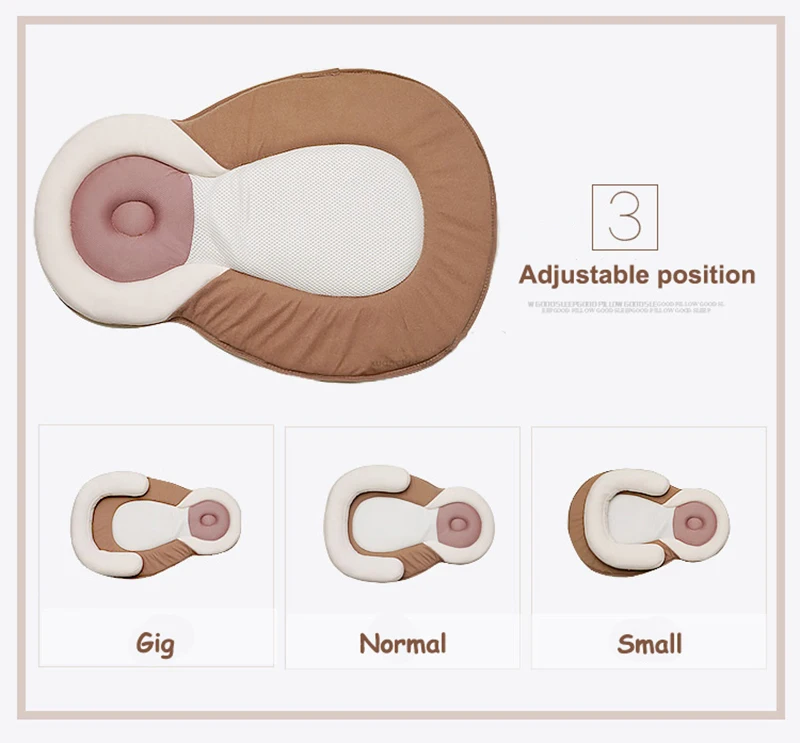 As a baby grows, their sleep cycles progress and they begin to spend less time in REM sleep. They also begin experiencing the three stages of NREM, instead of one. As a baby grows, their sleep cycle looks more and more like an adults’ sleep cycle.
As a baby grows, their sleep cycles progress and they begin to spend less time in REM sleep. They also begin experiencing the three stages of NREM, instead of one. As a baby grows, their sleep cycle looks more and more like an adults’ sleep cycle.
Understanding a baby’s sleep cycle is important for parents interested in sleep training. Because babies are not born with a strong circadian rhythm, sleep training is not possible for most newborns. Parents who want to sleep train have to work with their baby’s unique development timeline, and might not be able to sleep train until six months of age.
How Much Rem Sleep Do Babies Get?
Newborn babies spend roughly 50% of their time asleep in REM. Since newborns sleep up to 18 hours each 24-hour period, that means they experience up to nine hours of REM each day.
As a baby’s sleep schedule changes, so do their sleep cycles. Baby REM sleep is one part of the sleep cycle that changes over time. However, there is no simple chart outlining sleep cycle length or REM by age.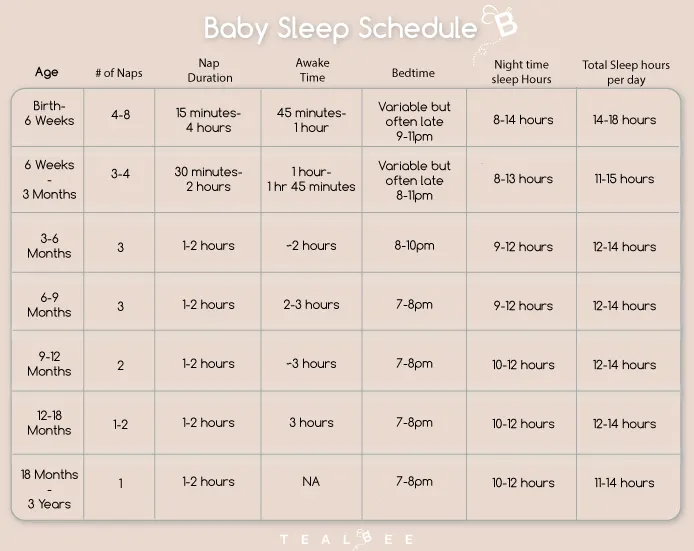
As babies grow and sleep fewer hours, they spend less of their sleep time in the REM stage. By adulthood, people experience REM for roughly 20% of each night’s sleep, which is far less than the 50% of sleep newborns spend in REM.
- Was this article helpful?
- YesNo
References
+9 Sources
-
1.
Tham, E., Schneider, N., & Broekman, B. (2017). Infant sleep and its relation with cognition and growth: a narrative review. Nature and Science of Sleep, Volume 9, 135–149. https://www.ncbi.nlm.nih.gov/pmc/articles/PMC5440010/
-
2.
Watson, N. F., Badr, M. S., Belenky, G., Bliwise, D. L., Buxton, O. M., Buysse, D., Dinges, D. F., Gangwisch, J., Grandner, M. A., Kushida, C., Malhotra, R. K., Martin, J. L., Patel, S. R., Quan, S., & Tasali, E. (2015). Recommended amount of sleep for a healthy adult: A joint consensus statement of the American Academy of Sleep Medicine and Sleep Research Society.
 Sleep, 38(6), 843–844. https://www.ncbi.nlm.nih.gov/pmc/articles/PMC4434546/
Sleep, 38(6), 843–844. https://www.ncbi.nlm.nih.gov/pmc/articles/PMC4434546/ -
3.
Wielek, T., Del Giudice, R., Lang, A., Wislowska, M., Ott, P., & Schabus, M. (2019). On the development of sleep states in the first weeks of life. PLoS One, 14(10), e0224521. https://journals.plos.org/plosone/article?id=10.1371/journal.pone.0224521
-
4.
Sadeh, A., Mindell, J. A., Luedtke, K., & Wiegand, B. (2009). Sleep and sleep ecology in the first 3 years: a web-based study. Journal of Sleep Research, 18(1), 60–73. https://pubmed.ncbi.nlm.nih.gov/19021850/
-
5.
Daftary, A. S., Jalou, H. E., Shively, L., Slaven, J. E., & Davis, S. D. (2019). Polysomnography reference values in healthy newborns. Journal of Clinical Sleep Medicine, 15(03), 437–443. https://pubmed.ncbi.nlm.nih.gov/30853051/
-
6.
Grigg-Damberger, M. M. (2016). The visual scoring of sleep in infants 0 to 2 months of age. Journal of Clinical Sleep Medicine, 12(03), 429–445 https://www.
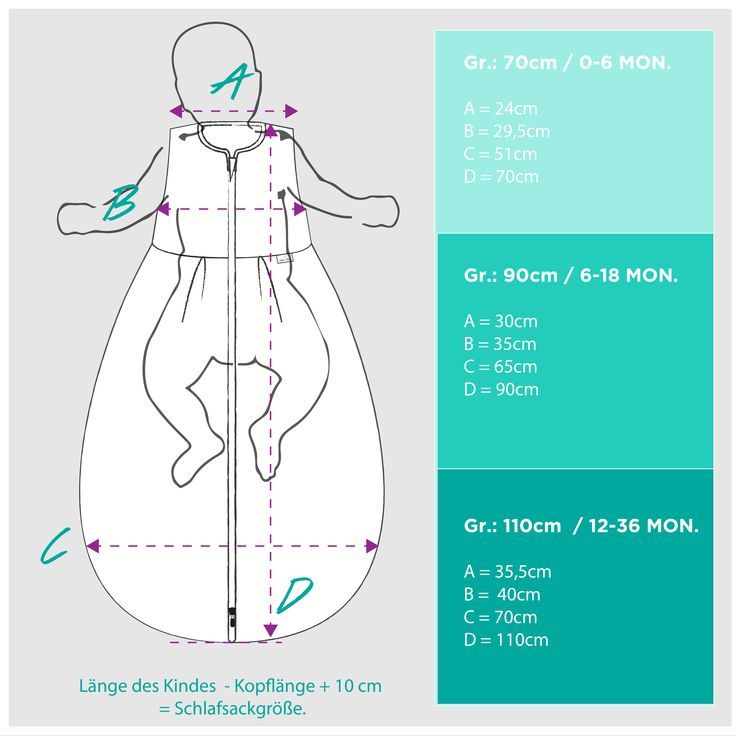 ncbi.nlm.nih.gov/pmc/articles/PMC4773630/
ncbi.nlm.nih.gov/pmc/articles/PMC4773630/ -
7.
Patel A.K., Reddy V., Araujo J.F. (2020). Physiology, sleep stages. In: StatPearls [Internet]. Treasure Island (FL): StatPearls Publishing. https://www.ncbi.nlm.nih.gov/books/NBK526132/
-
8.
Crosby, B., LeBourgeois, M. K., & Harsh, J. (2005). Racial differences in reported napping and nocturnal sleep in 2- to 8-year-old children. Pediatrics, 115(1), 225–232. https://www.ncbi.nlm.nih.gov/pmc/articles/PMC2987587/
-
9.
El Shakankiry, H. M. (2011). Sleep physiology and sleep disorders in childhood. Nature and Science of Sleep, 3, 101. https://www.ncbi.nlm.nih.gov/pmc/articles/PMC3630965/
See More
Sleep and wakefulness regimen of a newborn baby, sleep table of an infant by months
10/15/2018
71
The mother of four-month-old Vladik Maria sleeps fitfully at night - most often sitting on a rocking chair and holding Vlad in her arms. The baby is difficult to put down - immediately crying, arching. This has been going on for a whole month and it is not known how long it will last - up to 6 months, up to a year? It is said that children at the age of three begin to sleep on their own in their beds. But what to do before the cherished three years? Let's figure it out!
The baby is difficult to put down - immediately crying, arching. This has been going on for a whole month and it is not known how long it will last - up to 6 months, up to a year? It is said that children at the age of three begin to sleep on their own in their beds. But what to do before the cherished three years? Let's figure it out!
The reason for Vladik's difficulty falling asleep is the baby's wrong sleep pattern. Tantrums to fall asleep, the inability to put the child to bed, frequent nocturnal awakenings and early rises are the result of an improper sleep and wakefulness regimen for infants and grown-up children.
The baby does not get enough rest, gets overtired and because of this cannot sleep soundly. Therefore, if you are faced with the problems described, it is worth adjusting the child's regimen, taking into account his age and physiological needs.
NEWBORN BABY SLEEP MODE
Up to four months it is difficult to talk about any clear sleep and wakefulness schedule for a newborn baby. In the first 4 months after birth, the child goes through neurological "growing up" and adjustment of "sleepy" processes.
In the first 4 months after birth, the child goes through neurological "growing up" and adjustment of "sleepy" processes.
The sleep schedule for babies is something like this:
- In the first few weeks of life, a newborn can sleep from 17 to 20 hours a day. It is important to monitor the time of wakefulness, that is, the time between sleeps of the baby. This includes feeding, getting ready for bed, and getting to bed. Up to two months, the waking time is no more than 75 minutes.
- From 2 to 4 months, sleep is reduced to 14-16 hours a day. And the time of wakefulness, on the contrary, increases to 90 minutes. Even a 5-10 minute binge can cause short dreams and frequent awakenings of the child.
- Up to 3 months, daytime sleep can be 20-30 minutes or, conversely, 2-4 hours. In each case, at this age, this is the norm. A baby's naps will begin to lengthen to 40-60 minutes after 3 months, and their number will decrease to 3-4.
Extend your newborn's sleep by rocking, breastfeeding, nippling, strolling. It is advisable to alternate each method of calming the baby so that there is no habit of one of them in the future.
It is advisable to alternate each method of calming the baby so that there is no habit of one of them in the future.
If the previous sleep was still short, the time spent awake until the next sleep should also be reduced by at least 15 minutes.
To set your newborn's internal clock, take your newborn out to bright daylight often and dim the lights at night. In the future, this will help to establish a sleep and wakefulness pattern for the baby.
BABY'S SLEEP SCHEDULE after 4 months
The sleep and wake patterns of an infant after 4 months will be clearer with getting up at 6:00-7:00 am and going to bed early between 18:00 and 20:00 pm.
In physiological mode, daytime naps should be arranged between: 8:00-10:00, 12:00-14:00 and 15:30-17:00. During these periods of time, the hormonal background of the child changes - there is a peak in the production of the sleep hormone melatonin. Body temperature drops, metabolic processes in the body slow down. All this contributes to an easier transition from the state of wakefulness to sleep.
All this contributes to an easier transition from the state of wakefulness to sleep.
To find the right time for bedtime, be guided by the norms of wakefulness of the baby at each age.
To do this, use the table with the child's sleep schedule by months:
The table shows average norms, for your baby they may be a little more or a little less. Also, the wake time in the morning and evening will be shorter than the daytime wake time. Be sure to watch your baby for signs of fatigue. Until 4-6 months, focus on them so as not to miss the time of easy laying.
SLEEPING AND FEEDING OF THE CHILD
Feeding the baby in the first months of life is based on the demand of the child. During this period, the mother is lactating, and the more often the baby is on the breast, the more prolactin "channels" will open. Therefore, the sleep and feeding schedule of a newborn baby will be different every day.
By 4 months we organize feeding around dreams.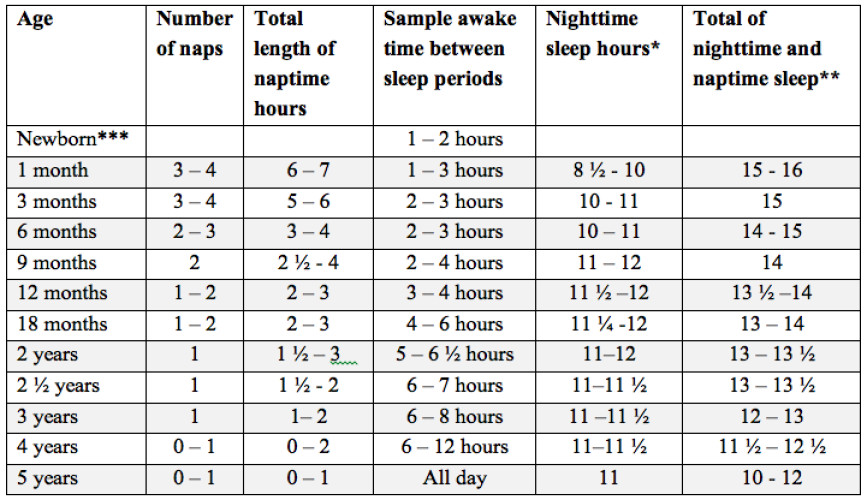 Most often, the baby eats to wake up and fall asleep, to calm down, or just when he wants to visit his mother.
Most often, the baby eats to wake up and fall asleep, to calm down, or just when he wants to visit his mother.
Sleep and feeding schedule at night by month:
- Up to 3-4 months, we feed the baby 2-4 times per 12 hours of night sleep.
- Babies 5-7 months require 1-2 feedings per night.
- By 10-12 months, most babies, regardless of type of feeding, can sleep through the night without waking up for feedings.
It is important to understand that a child's sleep schedule and nutrition are discussed in terms of physiological norms when the baby is healthy, gaining weight and developing well.
Creating a clear sleep schedule and a predictable daily routine for a child is the key to his well-being and mood. A well-rested child copes with negative emotions and everyday difficulties more easily. And also - faster learns the skill of self-falling asleep.
What is your baby's sleep-wake pattern?
Like this article? Rate:
Votes: 177
child development from 0 to 1 month
03/01/2019
19
The long-awaited day has come and we finally arrived home with the baby from the maternity hospital.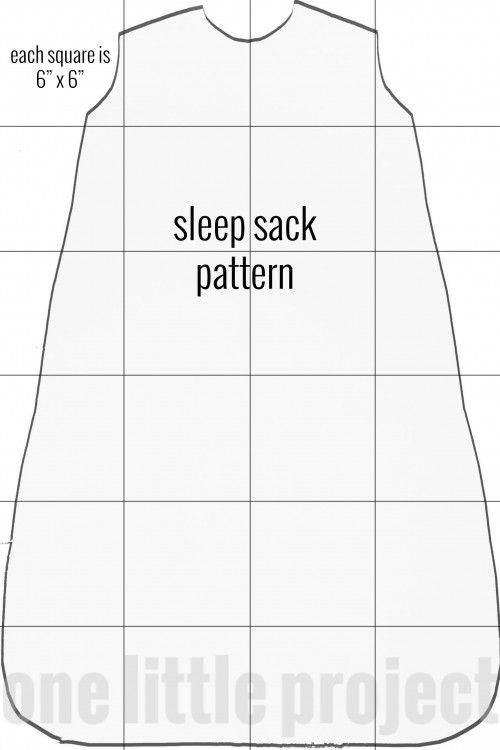 And now, in place of the hospital calmness, where everything seemed so clear, a wave of emotions swept over me. When and how often should I put him to bed? How to combine sleep and feeding from the first days? Should a child have a regime or should not organize a clear schedule?
And now, in place of the hospital calmness, where everything seemed so clear, a wave of emotions swept over me. When and how often should I put him to bed? How to combine sleep and feeding from the first days? Should a child have a regime or should not organize a clear schedule?
All the knowledge was in theory, but it was not easy to put it into practice. Therefore, I share recommendations that it is good for a young mother to know in order to survive such a difficult first month!
Baby's routine
Before we talk about the baby's daily routine, it's useful to remember a few facts about the sleep of babies of this age: Yes, all children are different - some sleep more, others less. But in general, babies need to sleep about 16-18 hours a day.
 Therefore, all actions to organize the child's day regimen will be directed to this.
Therefore, all actions to organize the child's day regimen will be directed to this. Given these facts, it can be said that it is difficult to create a clear day schedule of 1 month.
Daytime sleep
Daytime dreams will not differ from nighttime dreams. During the day, a newborn baby can sleep both 3-4 hours and 20-40 minutes in one dream.
The longest sleep period can be in a day.
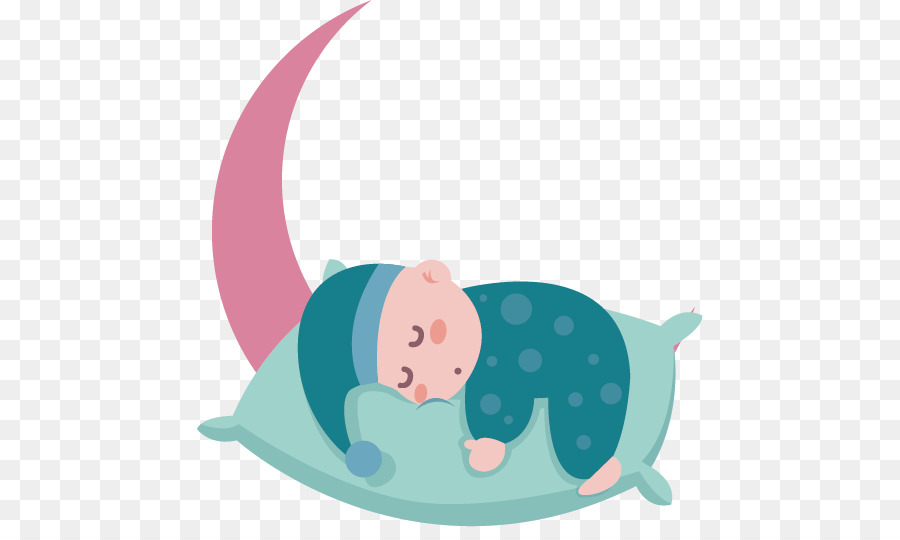
How do you know when a baby wants to sleep again? Focus on signs of fatigue in a child: if he rubs his eyes, looks at one point, sucks his thumb, then it's time for him to sleep. It is also recommended not to exceed the awake time for more than 50-60 minutes if the previous sleep was more than an hour. If the sleep was less than an hour, the period of activity of the crumbs will be the same amount of time. Overworking the child leads to long bedtimes, restless sleep at night and an incomprehensible daily routine.
Night sleep
Sleep can be about 7-10 hours at night. The baby will wake up for feeding. If in the evening your baby began to cry non-stop for several hours, it may be colic. The period of colic lasts up to 6-8 weeks. After feeding, hold the baby upright - this will help his digestion, do a light massage of the tummy.
If you suspect that crying is not related to colic, be sure to contact your doctor.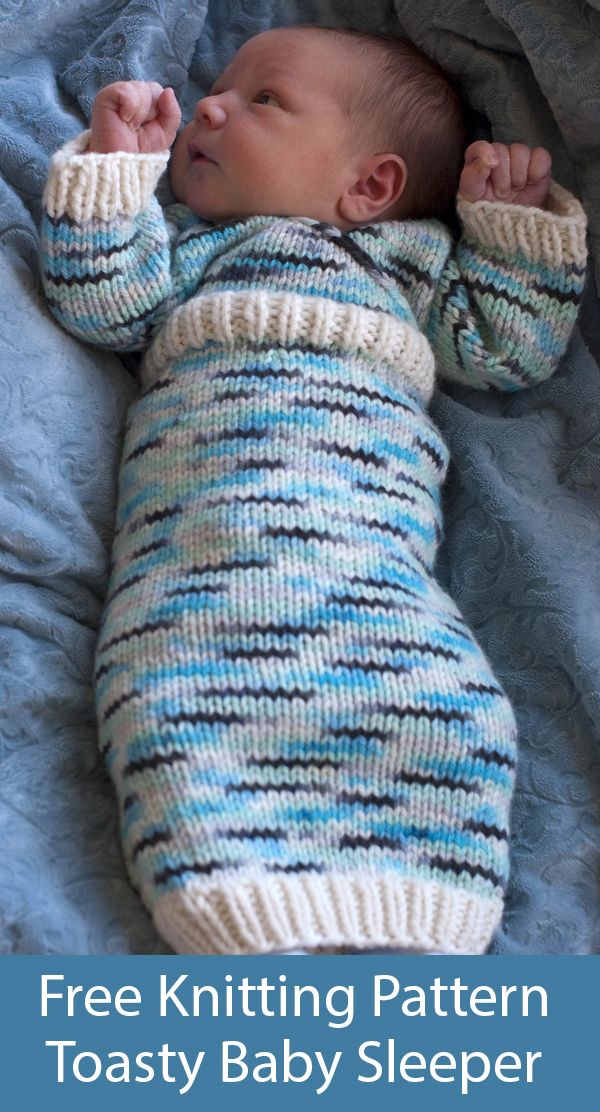 If you are formula feeding, talk to your pediatrician - it may be that changing infant formula will improve the baby's condition.
If you are formula feeding, talk to your pediatrician - it may be that changing infant formula will improve the baby's condition.
Confusion of day and night
Until 6-8 weeks of age, babies may confuse day and night due to an immature biological clock.
Take your baby out to bright light during the day and dim the lights at home in the evening. Use a night light with a warm, low light at night during feedings and diaper changes.
How to let a 1 month old baby know that it's time to start the day or go to bed?
Rituals will come to the rescue - daily repeated actions after waking up or going to bed. In the morning it can be hygiene procedures, and in the evening - bathing, quiet games, swaddling and a lullaby.
Baby bed
To prevent SIDS (Sudden Infant Death Syndrome), certain rules are followed when organizing a baby bed.
-
Always place your newborn on their back.
 This is the safest position for a baby right now.
This is the safest position for a baby right now. -
Avoid overheating the baby - it is more dangerous for him than the cold. Therefore, pay attention to the temperature in the room: it should not exceed 21-23 degrees in winter and 25 degrees in summer.
-
The child needs to sleep on a flat, firm surface, without blankets, pillows, bumpers, toys or other things.
-
A separate nursery is not needed for up to six months, and sometimes up to a year - a crib in the parents' room is an ideal option for a child to relax. You can remove one wall of the crib and attach it to the bed of the parents. So the baby will be as close as possible to mom at night, but at the same time on a separate surface.
Tips for helping your newborn sleep
Feeding your newborn
Feeding on demand is considered to be the best way to manage your newborn's diet.
In the early days, breastfeed as often as possible. This stimulates milk production. We feed from 15 to 90 minutes. Prolonged feeding allows a newborn baby not only to satisfy hunger, but also to survive the stress after childbirth and get used to the new world. After the baby is likely to fall asleep. Night feedings are equally important for both the baby and the mother. They will mostly occur every 3-4 hours.
To improve lactation, also try to feed in the early hours of the night.
If a breastfed baby is eating well and gaining weight, he does not need additional food and fluids until 4-6 months of age.
Walks
An important part of the daily routine of a newborn this month. Walking outside helps set your baby's biological clock and improves sleep. You can walk with a healthy and full-term baby starting from the 10th day of life. Increase the time of outdoor walks gradually until the child is 1 year old, starting from 10 minutes in winter and 20 minutes in summer.






